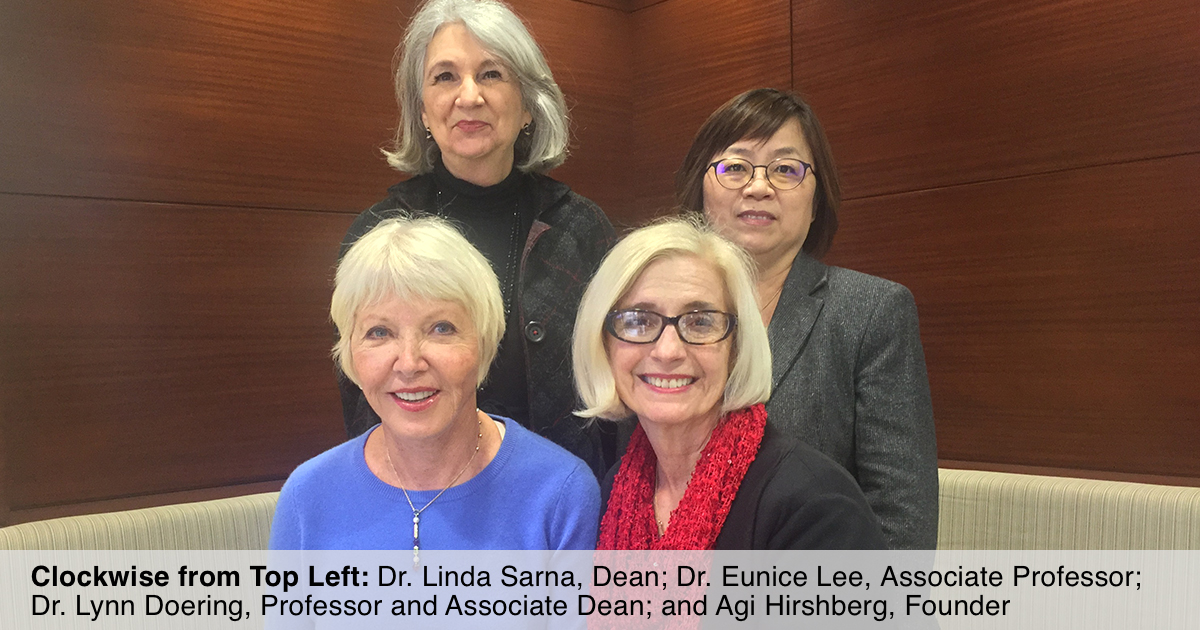Pancreatic cancer remains one of the deadliest of all cancers, with a five-year survival rate of around 4 percent. It’s no wonder that battling the disease takes a toll on caregivers as well as patients.
The UCLA School of Nursing hopes to improve the quality of life for patients and their loved ones through a generous grant from the Hirshberg Foundation for Pancreatic Cancer Research. The grant will fund a study to be led by Professor Lynn Doering and Associate Professor Eunice Lee.
Although there is ongoing research into a cure for pancreatic cancer, this study is the first to focus on the issues that often surround the illness, including depression and dealing with the symptoms of disease and the side effects of treatment, such as pain and fatigue.
“While most studies focus on the cure, nurses are focused on the care,” Dean Linda Sarna said. “I think this is an exciting opportunity to make a difference in a disease that is one of the deadliest cancers.”
There is evidence that, when treatment of patient-report symptoms are integrated into routine care, survival time increases. It’s also imperative to provide supportive care to reduce hospital stays and preserve quality of life, Sarna noted.
This innovative new study will look for a link between nurse contact and patient well-being and will employ an online nursing intervention to improve depression. It also will evaluate how the smartphone app chemoWave can increase collaboration with caregivers and improve patient well-being by recording and monitoring patients’ physical and emotional states.
“We are truly appreciative of the opportunity to conduct this study in order to grow science in the field, and help patients with pancreatic cancer,” Professor Doering said. “We are particularly excited to integrate this unique cancer-specific smartphone application to address depressive symptoms, and overall quality of life for these patients.”
Agi Hirshberg, who established the foundation after her husband died after an eight-month, seven-day battle with pancreatic cancer, said she is grateful to the School of Nursing for taking on the challenge of improving the lives of patients and their families. “It is my heartfelt passion to ensure the best possible outcome for pancreatic diseases, this time without any additional medication, relying on the human touch.”


